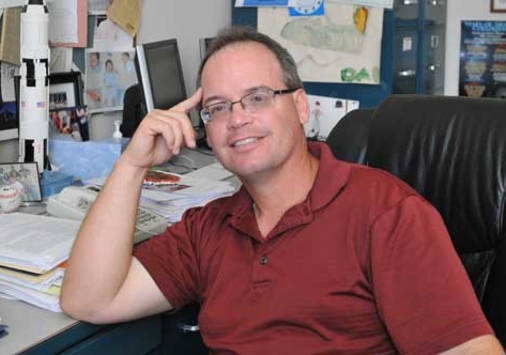
Denison Alum, Amanda Sickafoose ‘97, will discuss her career at the Planetary Science Institute from her home in South Africa.
Short of sending spacecraft, stellar occultations – when an object fleetingly passes in front of a background star – are one of the best ways to study small bodies in the outer Solar System. Object sizes and shapes can be measured to km-level accuracy, atmospheres can be detected at nanobar levels, and rings can be characterized to low optical depths. Successful observations of stellar occultations require being in exactly the right place at the right time, with the right equipment. We regularly use telescopes around the world for these observations, including in the U.S., Hawaii, Australia, Chile, and South Africa. I will present results from our ongoing program of predicting and observing stellar occultations by Pluto and other trans-Neptunian Objects (TNOs). As a Denison alum (’97), my career started in the Physics & Astronomy Department. I’ve moved around the U.S. and currently live in South Africa. My work has included observational planetary astronomy, laboratory plasma physics, computer modeling, instrumentation building, and even management. It’s an honor to have a chance to speak with current Denison students about different research topics and career paths





